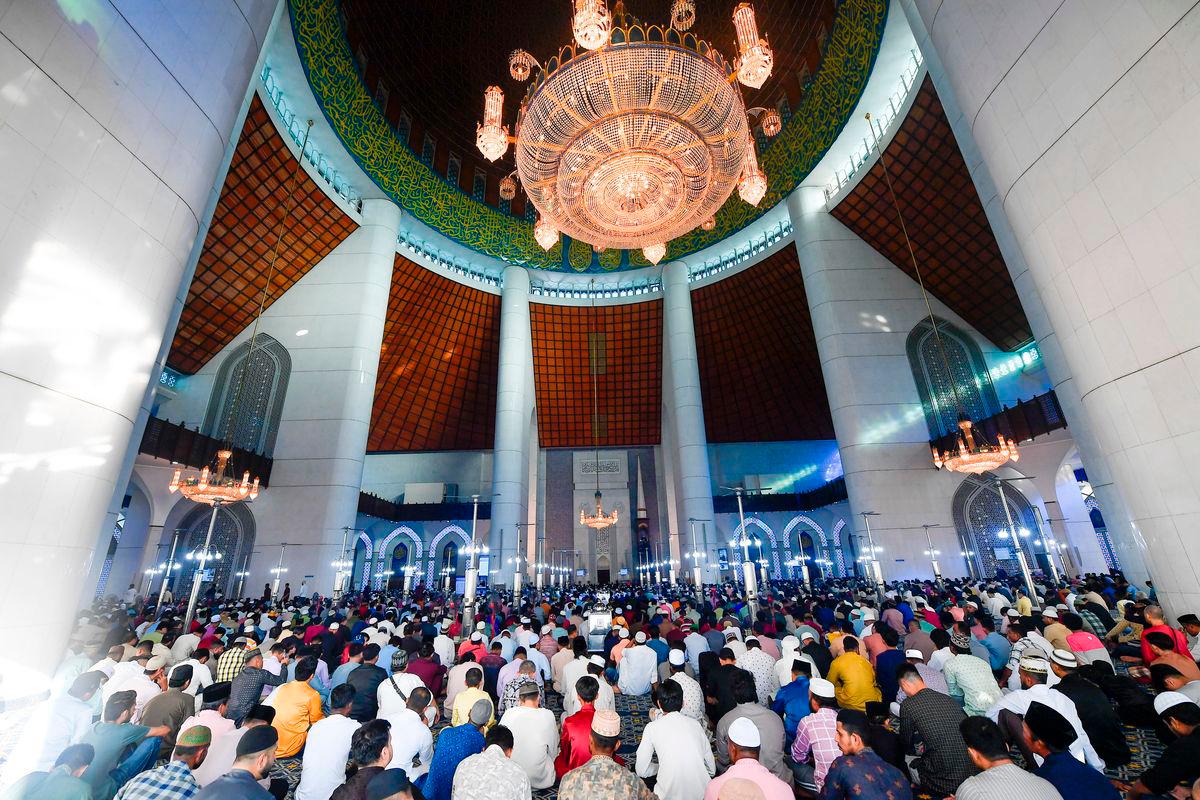PETALING JAYA: As Muslims in Malaysia and worldwide celebrate Hari Raya Aidiladha today, scholars urge believers to reflect on the deeper spiritual meaning of the festival, especially the values of selflessness, trust in God and compassion.
Known as the “Festival of Sacrifice”, Aidiladha commemorates the story of Prophet Ibrahim and his son Ismail, who showed unwavering faith and submission to God’s command in a profound test.
According to Islamic tradition, Prophet Ibrahim was commanded in a dream to sacrifice his beloved son, and just as he was about to do so, God intervened and replaced Ismail with a ram.
Federal Territories deputy mufti Jamali Mohd Adnan said the story is not merely historical but a powerful lesson in obedience and trust.
“It commemorates the absolute obedience of Prophet Ibrahim to Allah’s command as well as the willingness of him and his son to undergo one of the greatest tests in their lives.
“This is a spiritual lesson that should shape the character and soul of every Muslim.”
One key ritual is korban, the slaughter of livestock like cows, goats or sheep, with the meat distributed to the poor.
Jamali said while this may seem like tradition, it is rooted in generosity and social responsibility.
“The korban calls on us to avoid selfishness and instead share our blessings with those less fortunate. As stated in Surah al-Hajj, verse 36: ‘So eat of them and feed the needy who do not ask and the beggar.’
“This value strengthens Islamic brotherhood, and as the Prophet Muhammad said, ‘he is not a believer whose stomach is filled while his neighbour goes hungry’.
“These teachings remind believers not to be comfortable while others suffer. Empathy and community care should continue beyond the festival.”
International Islamic University Malaysia Department of Quran and Sunnah Studies assistant professor Dr Abu Hafiz Salleh Hudin said Aidiladha revives the Islamic principle of Tawhid (the belief in the oneness of God) and total submission to His will.
“It reflects absolute submission, with Prophet Ibrahim’s readiness to obey without protest when commanded to sacrifice his son, and Ismail’s acceptance of his father’s vision as divinely inspired.”
He said in a world where religion is often sidelined, Aidiladha reminds believers that faith must remain central, not peripheral.
“The distribution of meat, shared with others and not solely consumed by the owner, symbolises that blessings are not meant to be hoarded, but shared.
“True enjoyment of divine favours lies in generosity and collective gratitude.”
He urged young Muslims to engage sincerely with the festival’s meaning, beyond social media awareness.
“We want to see them dedicate themselves, whether by saving up to contribute to korban or reflecting deeply on the sacrifices of Prophet Ibrahim, Ismail and Prophet Muhammad.”
Abu Hafiz also highlighted that Prophet Ibrahim faced many trials. His patience, perseverance and hope offer lessons for all.
“At over 80 years, Prophet Ibrahim was blessed with children after years of prayer. Though the answer came late, he never lost hope.
“His story reminds us that delays are not denials, and Allah’s promises come to those who persist with faith.”
He said in times of economic pressure and personal anxiety, Muslims can draw inspiration from the values of Aidiladha.









